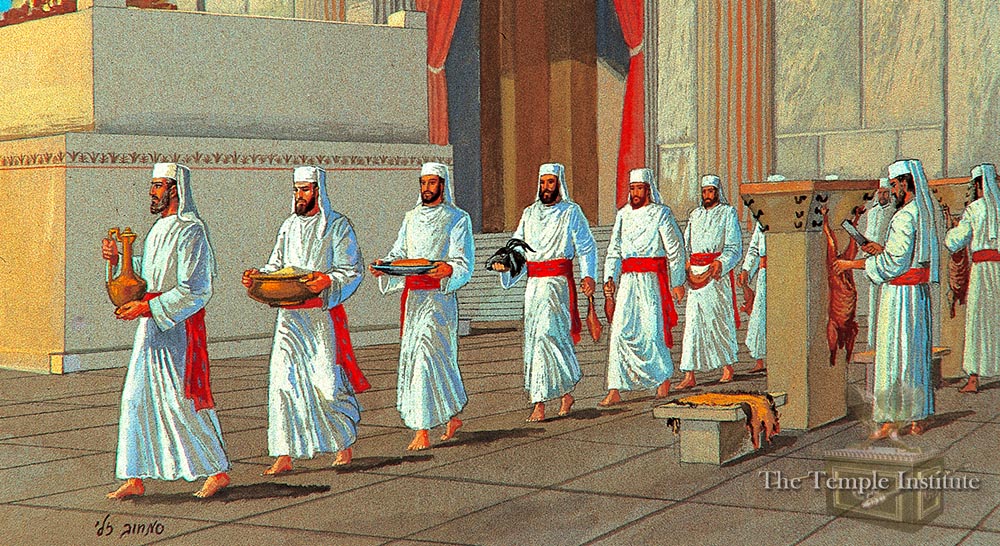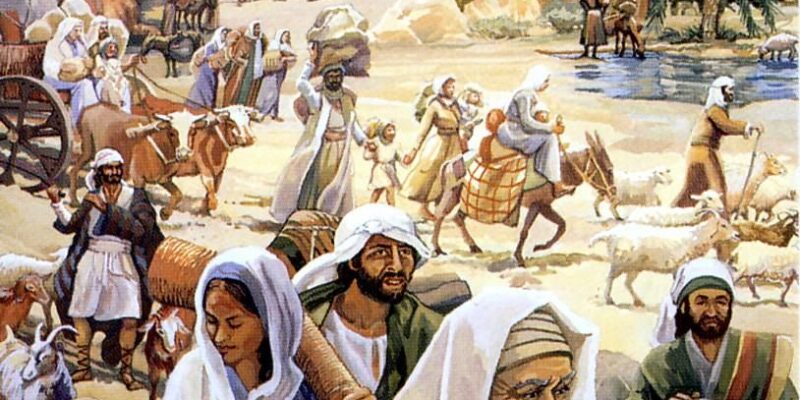I am reading the book of Leviticus and a few friends, so we have a topic of conversation to guide our weekly Zoom-meeting discussions. We’re taking it slow, but the questions come quickly. We have five Master’s degrees in Linguistics, Law, Chemistry, two doctorate degrees, and one doctoral candidate. We started by reading the first five chapters.
Sacrifice as Slaughter
In the first few chapters of Leviticus, it is hard not to feel a little queasy in response to all the detailed butchering of animals. Intimate descriptions that give insight into the most efficient way to drain blood from a bird or peel back the internal organs for viewing. I have yet to meet a biblical scholar with a background in surgery or butchery, but I would love to hear their thoughts on the subject matter here! Certainly, the details about sacrificing animals are best interpreted by someone accustomed to slicing into and identifying parts of the body.
Unfortunately, the intricate details of the sacrifice come across to the average reader as gruesome or horrific. So, it is easy to see why this particular book of the Hebrew Bible is often avoided and talked about as “replaced” by New Testament ideals, as Christians who have no wish to bring a prized sheep to church for slaughtering to make amends unto God. But, a better correlation to make here is one that a former Pastor and friend brought to attention in a sermon I heard many years ago. In today’s world, we slaughter animals in mass as part of the industrialized farming movement, and many of us eat meat from animals that are slaughtered in mass. By comparison, the priests in Leviticus recognize the intricacy of the created being that they slaughter, in a spiritual setting, and giving thanks for life spilled, not only for the forgiveness of sins but also for food. It is nourishment for the soul and the body, and it is all done in public view.
Sacrifice as Cleanliness
Leviticus is known for its rigorous lists of all things rules in the Bible. It is a Type-A person’s dream book, filled with lists upon lists of where the lines are and how to stay inside of them. The most important things are upfront. Leviticus describes how to get clean, pure before God and before the community in the opening chapters. The sacrifices are not just for show or an act of general worship. Each one is dedicated to a purpose, a response to felt guilt by a person in the community. It is sometimes tempting to come to a religious text and look for all the rules, but in Leviticus, the most important thing, the first thing, is how to get right. Only after you understand how to get right can you find out all the things that set you wrong.
In our discussion, we noted how there are only sacrifices for unintentional sins. The focus of reason for sacrifice was centered around the guilt felt by the wrongdoer. Presumably, there is no sacrifice to atone for intentional sin?
Sacrifice as an Ancient Practice
One of the things we learned about the sacrifices in Leviticus is that these kinds of sacrifices are common in other ancient Near Eastern texts. This means that making these particular sacrifices was a common practice and commonly understood among those who lived in the Levant. Archeological data suggests that similar restrictions and specific sacrifices were also made to the Canaanite god Baʾal.
This was a little frustrating since a few of us admitted to growing up in a Christian context that described the Israelites of the Hebrew Bible as extremely unique. We had understood that these sacrifices and their special instructions were distinctively Israelite, that God had called the Israelites to something special, something exclusive. Reconciling this archaeological evidence suggests that the Israelites were among an unspecified number of people from the broader group of Canaanites. The specifics of their journey to try and follow God were not so singular.
In the end, we found a bit of comfort in the fact that today’s world seems just as complex. It is difficult and sometimes messy to try and understand what God wants and who God chooses. The world we live in is complex, even among “like-minded Christians.”
Read Wandering Through Leviticus Part II and Part III.

Dr. Erica Mongé-Greer, holding a PhD in Divinity from the University of Aberdeen, is a distinguished researcher and educator specializing in Biblical Ethics, Mythopoeia, and Resistance Theory. Her work focuses on justice in ancient religious texts, notably reinterpreting Psalm 82’s ethics in the Hebrew Bible, with her findings currently under peer review.
In addition to her academic research, Dr. Mongé-Greer is an experienced University instructor, having taught various biblical studies courses. Her teaching philosophy integrates theoretical discussions with practical insights, promoting an inclusive and dynamic learning environment.
Her ongoing projects include a book on religious themes in the series Battlestar Galactica and further research in biblical ethics, showcasing her dedication to interdisciplinary studies that blend religion with contemporary issues.





Reading works by Thomas Horn, Derek & Sharon Gilbert Gilbert, Brian Godawa.